Research on insoles for managing knee osteoarthritis.
By: Sheila Kerr Posted: 4 February 2020
How many steps do you take in a lifetime? For people with knee osteoarthritis we know that using specially designed insoles or orthotics can reduce the amount of loading and pain during each step you take. Some people respond better than others to the use of these orthotics. Could it be you?
To help researchers determine who gets the best results from using different types of orthotics you can sign up for a study at the Motion Analysis and Biofeedback Lab at the University of British Columbia (UBC).
Here are the steps to get involved and participate:
Step 1:
See if you are eligible for the study. The researchers are seeking men and women aged 50 or more with knee osteoarthritis (OA). “You may be eligible to participate in this study if you have evidence of OA via x-ray and a history of knee pain over the last 6 months.” 1
Step 2:
Contact the study coordinator to undergo initial screening. This involves answering a few questions over the phone (Natasha – 604-822-7948) or online (https://mablab.rehab.med.ubc.ca/currentstudies/orthoticskneeoa/)
Step 3:
Undergo x-ray screening. If you have recent x-rays, the study coordinator will arrange for them to be sent to UBC. If you don’t have x-rays, she will book you for an appointment in Vancouver.
Step 4:
If you are eligible for the study based on your x-rays, you will be asked to attend a physical screening appointment. You will visit the Motion Analysis and Biofeedback laboratory at UBC Hospital. This visit will last approximately 1 hour.
You will fill out some questionnaires. This will be followed by having special sensors attached to your body. You will then be asked to walk back and forth 10-20 times. Special cameras will track how you move.
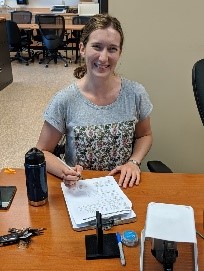
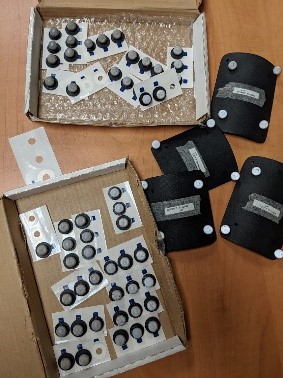 Sensors
Sensors
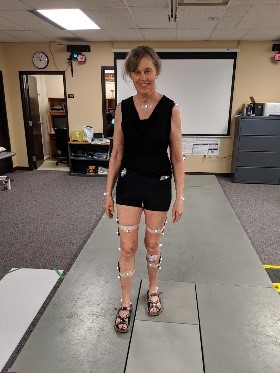 Sensors taped in place to pick up motion
Sensors taped in place to pick up motion
Step 5:
You will be sent to a store that makes orthotics. There you will have a foot posture assessment and 3D scan of your feet. The scan will be used to manufacture several versions of your custom orthotic insoles (which you can keep at the end of the study). There will be orthotics that are neutral, with a lateral wedge (higher on the outer edge than the inner edge), with an arch support, and with a lateral wedge and arch support combined.
This appointment takes about 30 minutes.
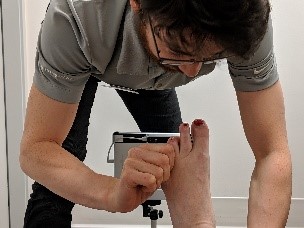
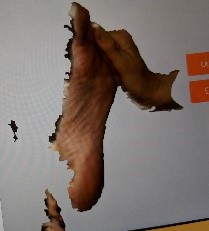
Step 6:
You will again visit the Motion Analysis and Biofeedback laboratory at UBC Hospital for a full testing of your walking with the orthotics. This visit will last approximately 3 hours.
You complete another set of questionnaires, then will have several clinical measurements of your feet and lower leg angles and flexibility.
The first set of your custom orthotics will be put into specialized research sandals.
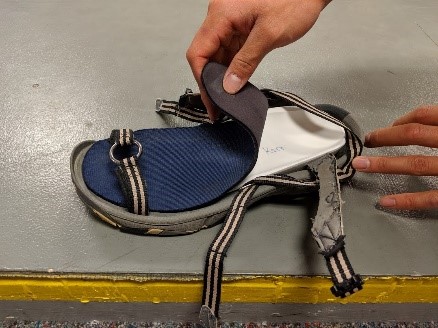
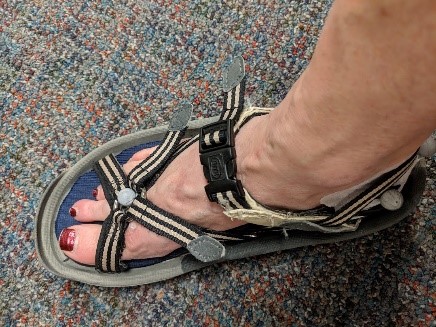
Then you will have sensors attached to your body again. These are the same that were used in the initial physical screen at UBC (Step 4).
You will walk over a specialized floor with force plates while being filmed with 3D motion sensor cameras. This will be repeated using the various different types of shoe insoles.
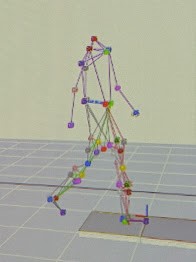
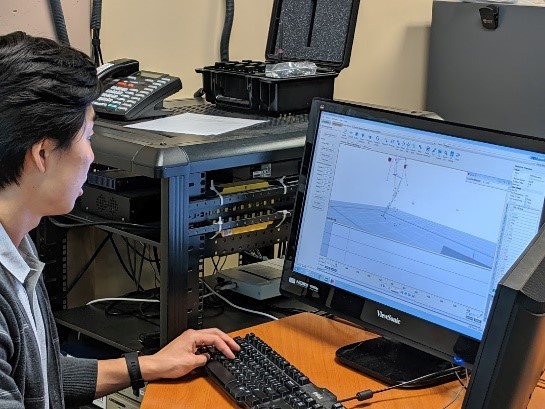
The computer will record all the data for future analysis.
Here is a short video of the motion sensors in action:
After testing, your results will be compared with the anonymous results of others in the study. You will be sent a report of the analysis showing you which insoles do the best job of aligning your joints and which ones reduce the load at your knee and ankles the most.
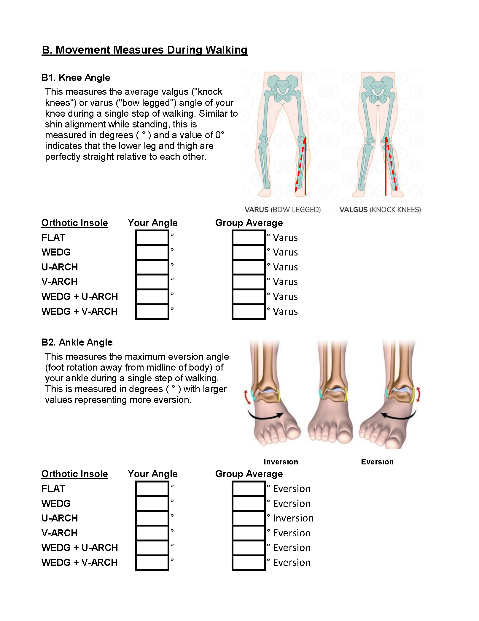
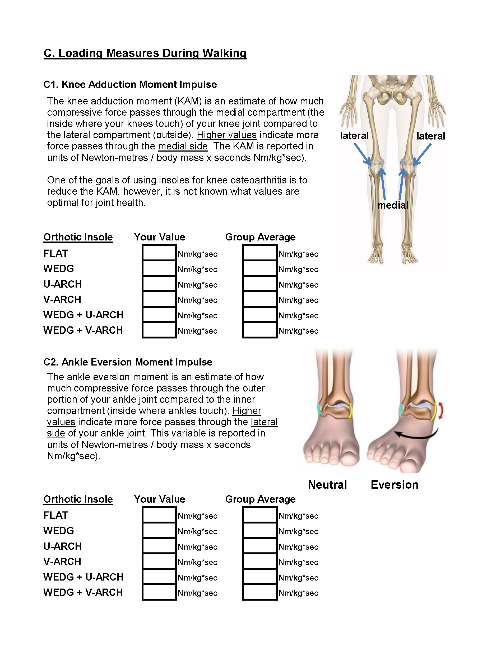
Step 7:
Finally, for those that meet the qualifications, there will be an optional final visit for an open MRI scan of your knee while standing using the various types of insoles. This visit will take place at Vancouver General Hospital and last approximately 3 hours in total.
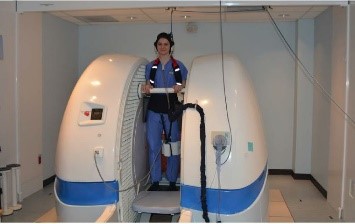 Upright Open MRI Scanner
Upright Open MRI Scanner
We hope that you or someone you know with knee osteoarthritis will consider joining the study. I found it to be most interesting and will use the results to help take a load off…. Specialized shoe insoles could be a great tool to add to your strategies for managing your knee osteoarthritis.
To fill out the eligibility form, click here, or call Natasha at 604-822-7948.
The research team hopes to see you stepping into their lab.
References:
1https://mablab.rehab.med.ubc.ca/currentstudies/orthoticskneeoa/